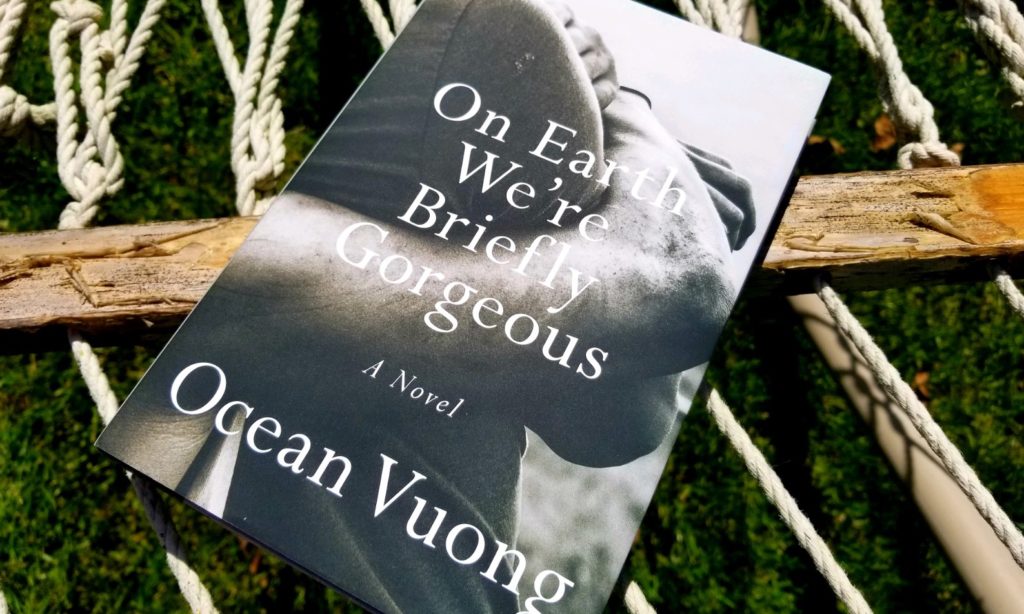Ocean Vuong’s On Earth We’re Briefly Gorgeous contains glorious and awful secrets whispered, too-closely, into one’s ear. It opens with a plea, “Let me begin again,” before taking the form of a letter written by a young Vietnamese American named Little Dog to his illiterate mother, Rose.
“Dear Ma, I am writing to reach you—even if each word I put down is one word further from where you are.” Little Dog desires connection through language, but acknowledges its impossibility. He also craves freedom: “I am writing because they told me to never start a sentence with because. But I wasn’t trying to make a sentence—I was trying to break free. Because freedom, I am told, is nothing but the distance between the hunter and its prey.”
Little Dog has been hunted for much of his life. Throughout his childhood, Rose abused him: “The first time you hit me, I must have been four. A hand, a flash, a reckoning. My mouth a blaze of touch.” On a school bus, boys who had “already mastered the dialect of damaged American fathers” smashed his face into a window. Although Little Dog later experiences “the coiled charge” of the possibility of desire, he is rendered nearly speechless when his lover, Trevor, dies: “But how do I tell you about that boy without telling you about the drugs that soon blew it apart, the Oxy and coke, the way they made the world smolder at its tips?”
This question, “How do I tell you …?” motivates Vuong’s novel.
More than once, I had to put the book down, moved to tears by the use of such beautiful prose to describe excruciating violence. I felt compelled to continue for two reasons. The first is because, ultimately, this a book about compassion (a word whose Latin root, compati, means to ‘suffer with’). Rather than simply accuse his aggressors, Little Dog gives voice to their pain, as he demonstrates how war, poverty, homophobia, racism, and addiction diminish those in their grasp.
The second is because I fell in love with Vuong’s exquisite vignettes. Here are three. As Little Dog plucks his grandmother, Lan’s, grey hairs, he is repaid with stories: “…the blank walls around us did not so much fill with fantastical landscapes as open into them, the plaster disintegrating to reveal the past behind it.” As Little Dog and Lan massage Rose, they find themselves clinging to “a mother the size of a raft,” that “took us all down this great brown river called America, finally happy.” As Little Dog daydreams about Trevor, he perceives the flaws in his own face as beautiful, because “for once” they were “…something that was wanted, that was sought and found.”
I circle back to Little Dog’s assertion that freedom is “nothing but the distance between the hunter and its prey.” As I type “prey,” I hear its homophone, “pray,” from the Latin, precari, meaning to “ask earnestly, beg, entreat.” On Earth We’re Briefly Gorgeous is a secular prayer—a presentation of violence, a plea for it to stop, and a memorialization of the grace that can occur despite and, perhaps even, because of it. Vuong’s meditation is an extraordinary triumph. It models not only how to survive violence but also how to recognize that which is gorgeous among us: “All this time I told myself we were born from war—but I was wrong, Ma. We were born from beauty. Let no one mistake us for the fruit of violence—but that violence, having passed through the fruit, failed to spoil it.” We can all learn something about how to resist becoming spoiled from this novel.

